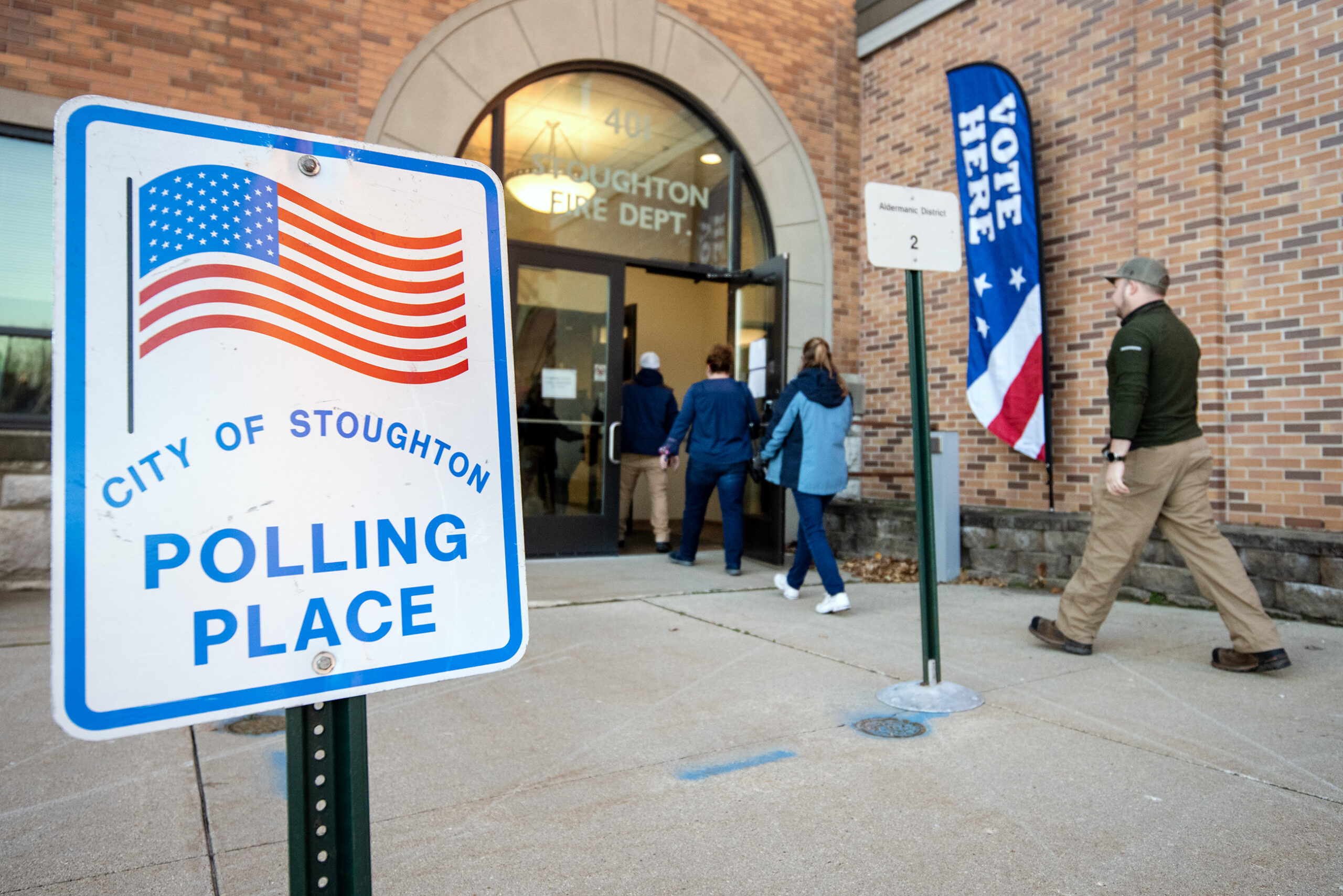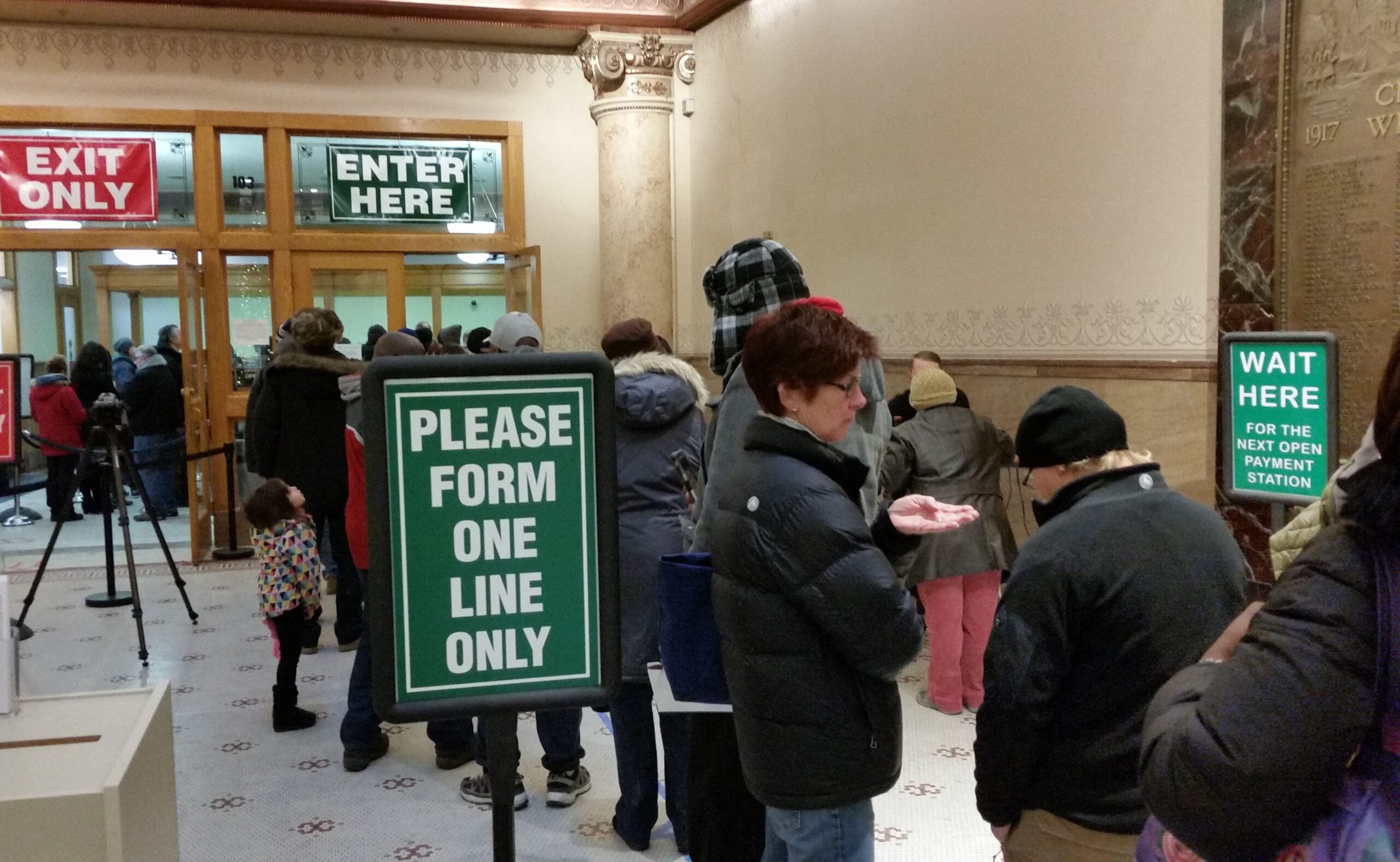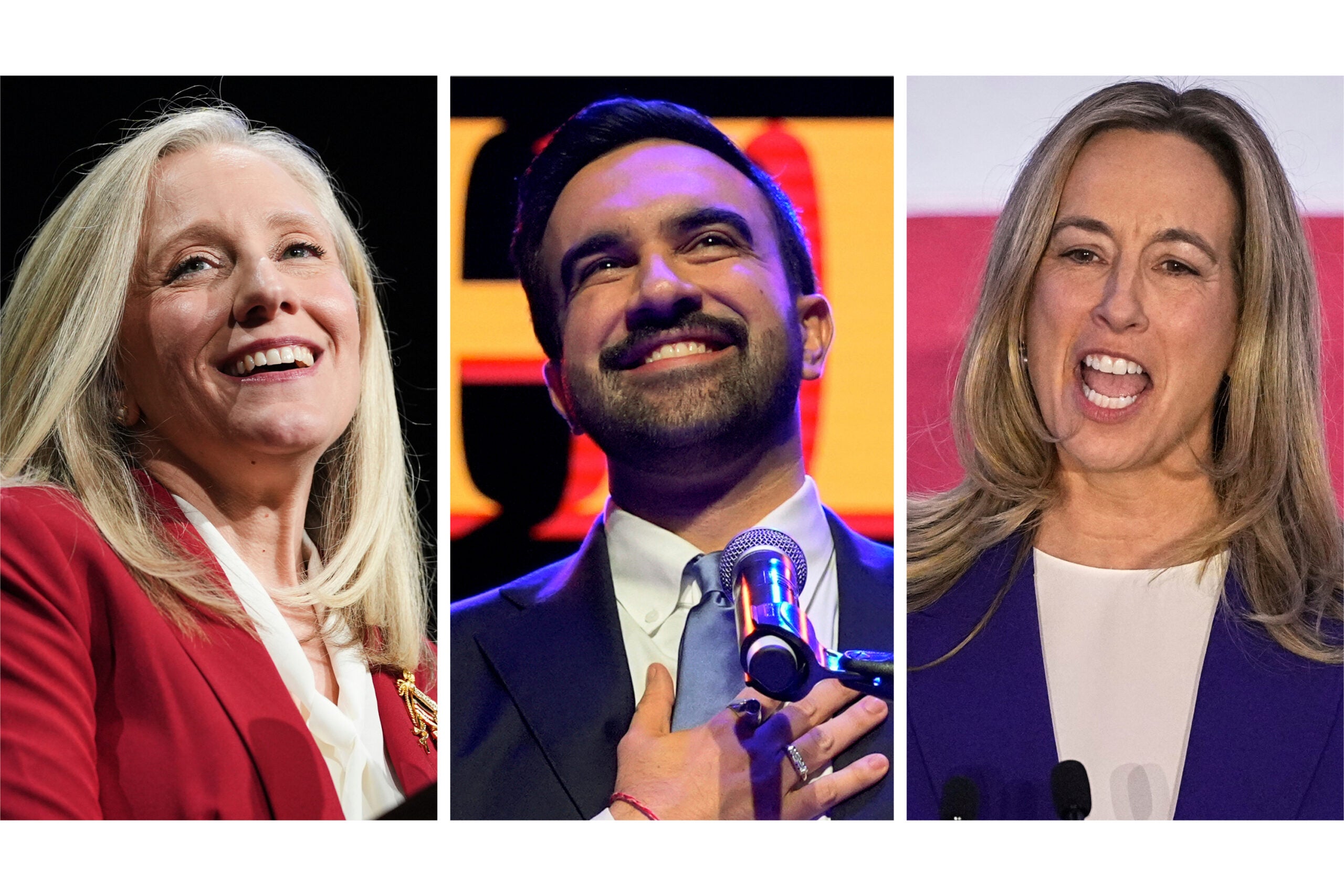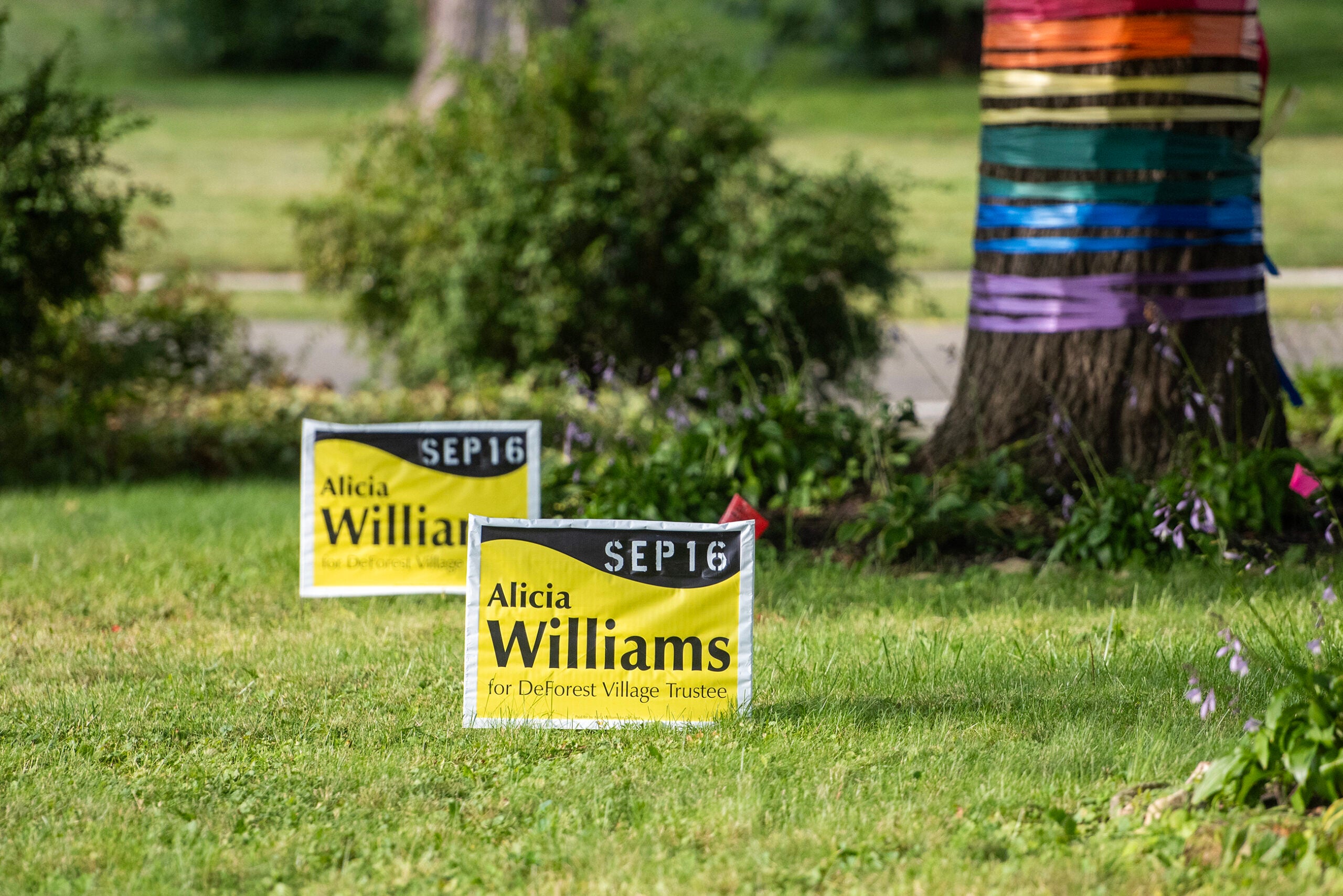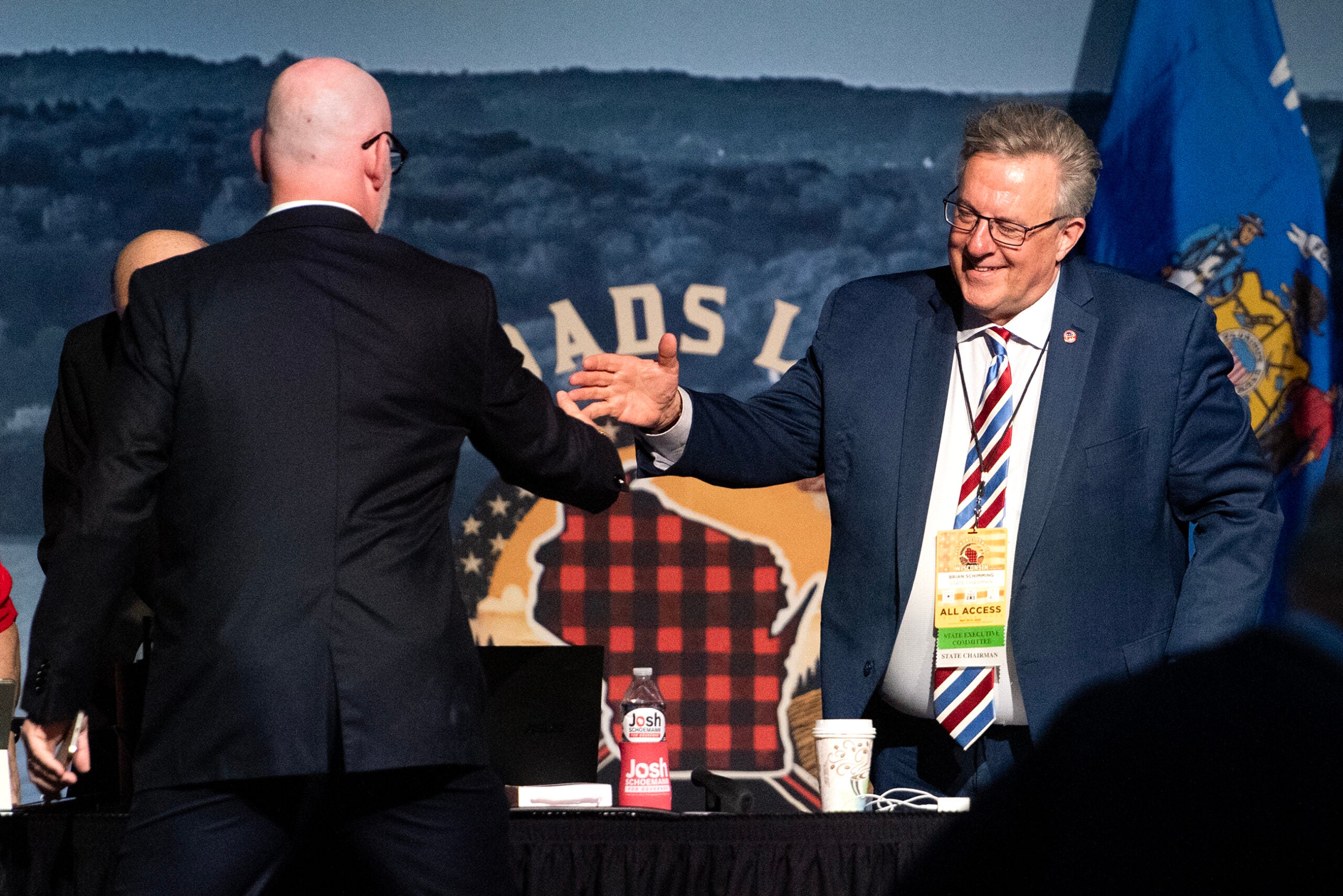This year’s election for Secretary of State, the tightest statewide race in Wisconsin, was still too close to call as of Wednesday afternoon.
Longtime Democratic incumbent Doug La Follette narrowly leads state Rep. Amy Loudenbeck, R-Clinton.
In unofficial vote totals updated at 2:12 p.m. Wednesday, La Follette had 48.3 percent of the vote compared to Loudenbeck’s 48 percent of the vote. La Follette leads by just 7,043 votes with 99 percent of votes counted. The Associated Press has not called the race.
News with a little more humanity
WPR’s “Wisconsin Today” newsletter keeps you connected to the state you love without feeling overwhelmed. No paywall. No agenda. No corporate filter.
Early Wednesday morning, La Follette lead by 0.1 percent, or 1,360 votes. At one point during the night, Loudenbeck pulled head of La Follette. If the margin between the candidates stays below 1 percent, Loudenbeck may request a recount.
“Due to the closeness of Tuesday’s election results my team and I will continue to review the results of the official canvassing and certification; then decide what steps to take once all of the votes have been counted,” Loudenbeck said in a statement from her campaign.
In a statement Wednesday, La Follette said his campaign was “confident” that he would remain ahead in the race as the final tallies come in.
“Should it come to a recount, we will trust that process as well,” he said. “Voters should have confidence in our elections, and it is important that every vote gets counted. That’s how our democracy functions.”
La Follette was first elected in 1974. He left office for four years after a failed bid for lieutenant governor in 1978, but won the Wisconsin Secretary of State seat again in 1982 and has held the office ever since.
Lawmakers have stripped the offices of the Secretary of State and State Treasurer of virtually all their powers. A push to amend Wisconsin’s constitution to eliminate the two offices was resoundingly defeated in 2018. But this year’s Secretary of State race came as the position has taken on added significance around the country, with some Republicans pledging to make major changes to the administration of elections in their states.
Wisconsin was no exception. While Wisconsin elections are overseen by the Wisconsin Elections Commission, which is run by a group of bipartisan appointees, Loudenbeck advocated for Wisconsin’s Secretary of State taking a larger role in running elections — if the state Legislature approved such changes and the governor signed them into law. La Follette has said Wisconsin should keep the office out of administering elections.
Aaron Weinschenk, a political science professor at the University of Wisconsin-Green Bay, said Gov. Tony Evers’ reelection and the Legislature failing to obtain a veto-proof majority makes the issue a moot point.
“If it made it through the legislature, it would almost certainly get vetoed by the governor,” he said.
La Follette told Wisconsin Public Radio his lead shows that the state doesn’t want a partisan politician in charge of elections.
“The voters saw that it was important to elect me because I was willing to protect the election process, and make sure that the voters intent was what was actually used,” he said.
A spokesperson for Loudenbeck said Wednesday that she was not taking interviews at this time.
Weinschenk said the Secretary of State race being the closest of Wisconsin’s statewide contests illustrates that voters are paying closer attention to down-ballot campaigns. In recent years, he said that also applies to local government races, including Green Bay’s most recent City Council elections which saw an influx of outside spending.
“People are now seeing these races that were previously thought to be relatively boring and unimportant as places where important things can play out,” he said.
Meanwhile, La Follette attributed the tightness of the race to two different third-party candidates running for Secretary of State and accounting for a little less than 4 percent of the vote.
“Some of that 4 percent would have gone to me if they would not have had the independent candidates,” he said. “And that makes a big difference.”
The Wisconsin Secretary of State Office has one full-time employee. Many of the office’s past duties — such as handling documents for businesses, like trademarks and uniform commercial codes — have been shifted to other agencies.
Leiber squeaks out a victory for state treasurer
Republican John Leiber won the race for Wisconsin’s state treasurer as he pulls ahead of Democrat Aaron Richardson in the low-profile race. The Associated Press called the race for Leiber at 1:56 p.m. Wednesday.
In unofficial vote totals updated at 2:12 p.m. Wednesday, Leiber received 49.7 percent of the vote compared to Richardson’s 48.1 percent. In other words, Leiber was ahead by 39,225 votes with 99 percent of votes counted.
Leiber felt there was no need to expand the office, while Richardson advocated for restoring the office’s powers.
With Democrats and Republicans winning statewide elections in Wisconsin this cycle, Weinschenk said it signals that voters are looking at individual candidates and issues when casting ballots.
“The issues make a difference, campaign ads can make a difference, the candidates can make a difference,” he said. “I think that shows that people are attuned to the differences across races.”
In a state as closely divided as Wisconsin, Weinschenk said split tickets can have a big impact on who wins and loses.
Editor’s note: WPR’s Andrea Anderson and Robert Mentzer contributed to this story.
Wisconsin Public Radio, © Copyright 2026, Board of Regents of the University of Wisconsin System and Wisconsin Educational Communications Board.

